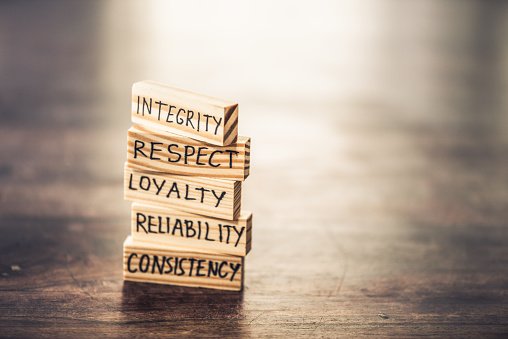Events

During a therapy session you have the space to talk about your emotions and stressors, confront your problems, and be provided with helpful feedback to support positive changes. The time spent in a therapy session can feel empowering, but this is only a small portion of your week. There are 168 hours in a week, less than one of those hours are spent in therapy. A common misconception is that attending your weekly therapy sessions is all that is needed, but the time in between therapy sessions also holds an important space to continue to progress. So the real question is, what do you do in the time in between therapy sessions? While there is not an exact science or formula that is guaranteed to work, the following are helpful tips and ideas to help you in between sessions.

This may seem like a silly title. How can a person do anything but value what they identify as valuable to themselves? It is true that many people make time, and commit energy, to the things they hold in the highest regard such as family, relationships, success, education, etc. However, like so many things, this can become an unconscious endeavor and your values can easily fall away from your focus as you find yourself building different routines. If one is neglecting their values, they may be unconsciously reinforcing depression, anxiety, grief, or anger. So how do we interact with our values in such a way that our lives and goals feel effective and meaningful?

As we start the New Year, the phrase “new year, new me” often resurfaces. This phrase brings up many different thoughts and reactions, first starting with, why do you need to create a “new you”? This has the connotation that you need to completely recreate yourself. Rather, why not focus on crafting the best version of yourself. The New Year tends to bring pressure to create a big resolution, but often these goals do not seem attainable and are often forgotten. This year, instead of formulating one overarching specific resolution, why not try something new? The following are just some ideas of how to be kinder to yourself while creating goals.

As the holiday season approaches, there is often talk of it being “the most wonderful time of the year” with increased emphasis on joy and celebration. However, the topic of stress and/or increased sadness related to holiday functions are often overlooked. Whether it may be feeling increased pressure, toxic family dynamics, financial difficulties, or any other concern; the holidays can negatively impact our own mental health if we are not taking care of ourselves. In gearing up for the holidays, it is important to develop and be aware of our own personal, healthy boundaries.

Having challenges with your quality of life can come from many sources. When you take what happens to you and combine it with your reactions (thoughts, feelings, beliefs, choices, etc.) you get the formula for your quality of life. Most of what happens to us lies outside of our control, which can influence thoughts and feelings we often feel initially, in new situations. However, it is important to understand that the subsequent thoughts and feelings we have, and the beliefs they form, are very influential on our overall quality of life. It is here that a skill referred to as Loving Kindness was developed from eastern meditative practices as a way of reducing stress-reinforcing beliefs and improving overall quality of life.

One of the best ways to start managing stress is to focus on your daily habits and routines. Do you have the so-called “basics” covered? You have heard and maybe even read about them before: exercising, staying hydrated, getting enough sleep, and so on. But have you evaluated how well you do each of these well-being habits and even if you are doing them consistently? Consistency is the key to building and maintaining healthy habits.

Autumn typically makes us think of many things: pumpkins, fall foliage, apple-picking, hayrides, and colder temperatures. While there are many themes that come up when fall comes to mind, mental health is typically not one of them. However, as we enter a new season, there are a lot of lessons the seasonal change can provide, with regard to overall wellness. Here are a few lessons from the transition of fall that can support overall wellbeing.

For many the summer is a time for relaxation, sunshine, vacations, and more. However, for others, the summer can be stressful. The heat, co-workers going on vacation and leaving more tasks, and others can lead to negative emotions. No matter what time of year, we all need self-care. If you find yourself struggling more so in the summertime, consider these strategies to boost your mood.

Starting your day off focused on things you enjoy, and what you want to achieve, can reduce the stress that can sometimes occur first thing. Aim to spend a few moments each morning focused on what you want your day to look like. Imagining a positive outcome can assist in this actually occurring. So aim to start your day considering what you are looking forward to and practicing self-care first thing.

As the pandemic has raged on, various communities have experienced struggles in our country and others, political tension has risen, and other nations have experienced hardships, the uncertainty and unpredictability of things can lead to feeling many symptoms of anxiety.
While many have established strategies to cope with some of the above factors, like wearing masks, the emotional toll these events have taken on us is large. The way we handle the difficult emotions that have developed as a result of this time period is important, as they can continue to negatively impact ourselves and others.